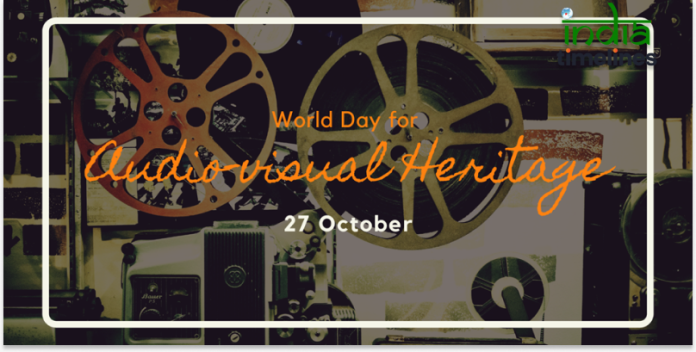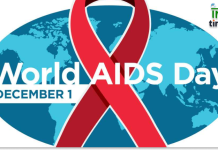
Every year on October 27th, we commemorate World Day for Audiovisual Heritage, a day dedicated to recognizing the importance of preserving our audiovisual materials. These treasures serve as vital records of our shared history and cultural identity, and their preservation is essential for future generations. But what exactly does this day celebrate, and why is it so important? Let’s dive in!
What is World Day for Audiovisual Heritage?
World Day for Audiovisual Heritage was established by UNESCO in 2005 to raise awareness about the significance of preserving audiovisual documents. This includes films, sound recordings, and digital content that capture the essence of our cultures and histories. The day serves as a reminder that these materials are not just entertainment; they are integral parts of our collective memory and identity.
The Role of Audiovisual Heritage
Audiovisual heritage encompasses a wide array of materials, from classic films and documentaries to radio broadcasts and online videos. These elements help us understand our past, reflect our cultural identity, and share stories that resonate across generations. For instance, a documentary about a historical event can provide insights that textbooks often miss, making it a crucial educational tool.
Challenges in Preserving Audiovisual Heritage
While the importance of preserving audiovisual heritage is clear, the challenges are significant.
Technological Obsolescence
One of the biggest hurdles is the rapid pace of technological change. Many formats, such as VHS tapes and reel-to-reel films, are becoming obsolete, and the equipment needed to play or digitize these materials is increasingly hard to find. As a result, a significant amount of valuable content is at risk of being lost forever.
Environmental Factors
Environmental conditions can also threaten audiovisual materials. Humidity, temperature fluctuations, and exposure to light can cause deterioration. Without proper storage and conservation measures, films and recordings can degrade, leading to permanent loss.
Why We Celebrate World Day for Audiovisual Heritage
World Day for Audiovisual Heritage serves multiple purposes. Firstly, it raises awareness about the challenges faced in preserving these materials. Secondly, it promotes the importance of these heritage pieces, encouraging both individuals and institutions to take action in their preservation efforts.
How Different Countries Observe the Day
Across the globe, various countries observe World Day for Audiovisual Heritage with events, discussions, and workshops. Museums and archives often host screenings, exhibitions, and public talks to engage the community and raise awareness about the significance of their audiovisual collections. Social media campaigns also play a crucial role in spreading the word and encouraging participation.
Key Organizations Involved
UNESCO’s Role
UNESCO is a key player in promoting and facilitating efforts to preserve audiovisual heritage. Through initiatives like the Memory of the World Programme, it helps recognize and safeguard documentary heritage around the globe. UNESCO also provides guidelines and resources for best practices in preservation.
Other Key Players in Audiovisual Preservation
In addition to UNESCO, various national archives, libraries, and non-profit organizations are dedicated to preserving audiovisual heritage. They collaborate on projects, share resources, and advocate for the importance of this work.
Success Stories in Preservation
There have been many notable projects aimed at preserving audiovisual heritage. For instance, the restoration of classic films like “Metropolis” and “The Wizard of Oz” has allowed new generations to experience these masterpieces. Additionally, efforts to digitize historical recordings have made them accessible to a wider audience, preserving them for future study and enjoyment.
How to Get Involved in Audiovisual Heritage Preservation
There are numerous ways individuals can contribute to the preservation of audiovisual heritage.
Volunteer Opportunities
Many local archives and museums welcome volunteers to help with cataloging, digitizing, and restoring audiovisual materials. This hands-on experience not only supports preservation efforts but also offers valuable insights into the work involved.
Ways to Support Local Archives
You can also support your local archives by donating funds or materials, advocating for their importance in your community, or simply spreading the word about their work. Every little bit helps in the fight to preserve our audiovisual heritage.
The Future of Audiovisual Heritage
The future of audiovisual heritage preservation is bright, thanks to innovations in technology. Digital preservation methods, such as high-resolution scanning and cloud storage, are helping to safeguard these materials against degradation. These advancements make it easier to access and share audiovisual content, democratizing knowledge and cultural heritage.
Impact of Social Media on Audiovisual Heritage
Social media has a dual impact on audiovisual heritage. On one hand, it allows for the rapid sharing of content, promoting awareness and engagement. On the other hand, the sheer volume of material produced can make it challenging to discern valuable content from the noise. As we navigate this digital landscape, it’s essential to remain vigilant about what constitutes cultural significance.
Educating the Next Generation
One of the most effective ways to ensure the preservation of audiovisual heritage is to educate the next generation. Teaching young people about the importance of these materials—how they shape our understanding of history and culture—will inspire them to take action and advocate for their preservation.
Common Misconceptions
Many people overlook the significance of audiovisual materials, thinking of them merely as entertainment. However, these records offer invaluable insights into societal changes, cultural norms, and historical events. Understanding their value is crucial for effective preservation efforts.
Conclusion
World Day for Audiovisual Heritage serves as a vital reminder of the importance of preserving our collective memory. It is not just about safeguarding old films and recordings; it is about protecting our cultural identity and history for future generations. As we observe this day, let’s commit ourselves to raising awareness and supporting preservation initiatives to ensure that these valuable materials endure.
FAQs
1. What is the main goal of World Day for Audiovisual Heritage?
The main goal is to raise awareness about the importance of preserving audiovisual materials, which are crucial for cultural identity and historical understanding.
2. How can I help preserve audiovisual heritage?
You can volunteer at local archives, support preservation organizations, or advocate for the importance of these materials in your community.
3. Why is audiovisual heritage important?
Audiovisual heritage helps document our history, culture, and societal changes, providing valuable insights for future generations.
4. What challenges do organizations face in preserving audiovisual heritage?
Challenges include technological obsolescence, environmental factors, and a lack of funding or resources.
5. How can I get involved in events for World Day for Audiovisual Heritage?
Check local archives, libraries, and museums for events or activities planned for the day. Many organizations host screenings, discussions, or workshops to engage the community.



































